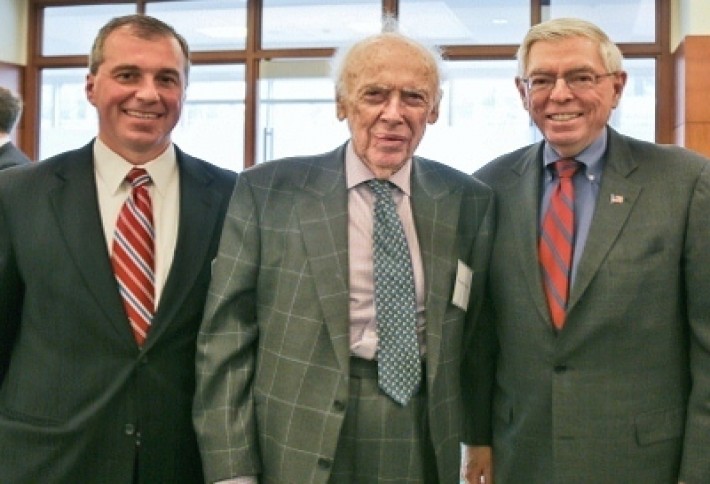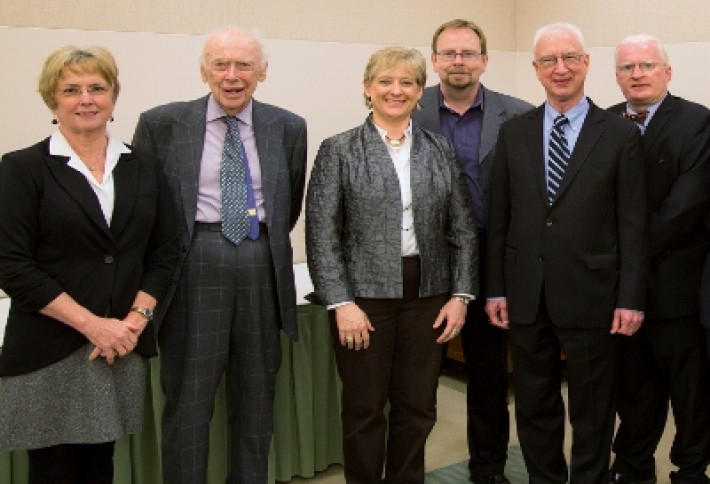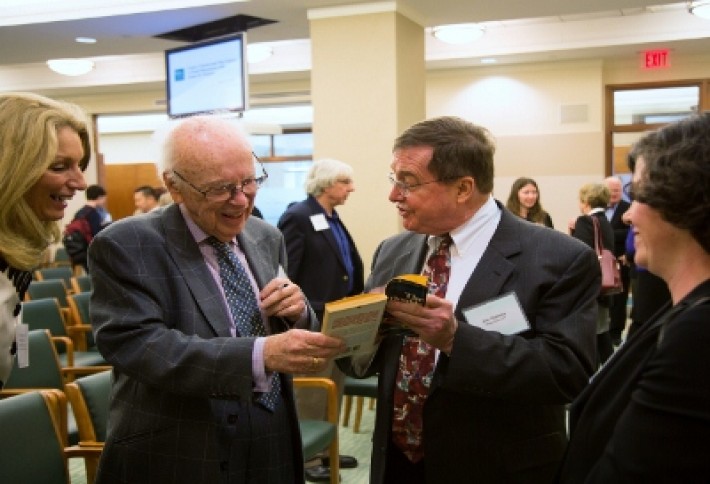Dr. Watson Talks Gene Patents

At age 25, Dr. James Watson co-discovered DNA's double-helix structure (he'd earned his PhD at 22). A few years later, he and Francis Crick won the Nobel Prize. This week, Dr. Watson, now 85, came to Wiley Rein to discuss gene patents.
"Why should you not patent human genes?" asked Dr. Watson, commenting on the landmark human gene patent case Myriad. "I guess the answer is they're just too important to our lives to put in the hands of one individual." He'sflanked above by Wiley Rein patent lawyer Matt Dowd and firm chairman Dick Wiley. Matt wrote and filed an amicus on Dr. Watson's behalf in Myriad, which had its oral arguments before the Supreme Court on Monday.
An expert panel discussed the Supreme Court oral argument; the ruling will decide whether to invalidate patents on two cancer genes. Above with Dr. Watson, panelists Sequella CEO Dr.Carol Nacy, MedImmune Biologics VP Dr.Laurie Hill, Biotechnology Industry Organization associate GC Hans Sauer, retired Federal Circuit chief judge Paul Michel, and GW law dean of IP law studies John Whealan. Watson's take: The USPTO doesn't have a high enough bar for issuing patents. "Right now, the Patent Office will give a patent to anything that a dumb person couldn't do."
This month marks the 60th anniversary of Watson and Crick's scientific paper describing DNA's double helix. US Court of Federal Claims Judge Mary Ellen Coster Williams, Wiley Rein patent chair Jim Wallace, and Catholic University associate law professor Elizabeth Winston celebrated in Wiley Rein's 1776 K St office by discussing Watson's book,The Double Helix, with the man himself.



